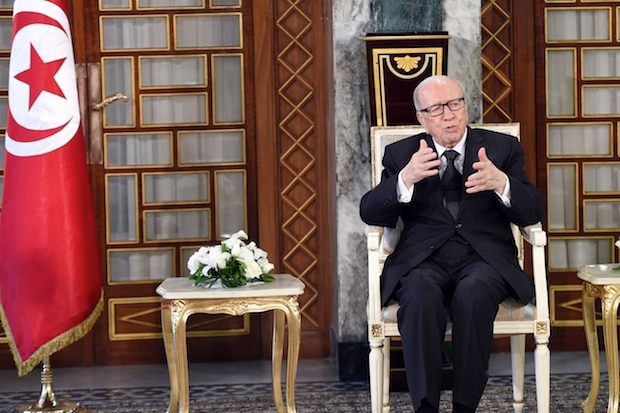Tunisia is preposterously touted as the one success story of the nightmarish revolutions, counter-revolutions, civil wars, jihadist invasions and Islamist terrorist atrocities in the name of an Arab Spring we are still told represents a thirst for Western-style freedom and plurality. The decision to award this year’s Nobel Peace Prize to the country’s National Dialogue Quartet, for apparently helping the country’s transition to democracy, dangerously perpetuates this myth.
The Nobel Committee says that the National Dialogue Quartet was…
…instrumental in enabling Tunisia, in the space of a few years, to establish a constitutional system of government guaranteeing fundamental rights for the entire population, irrespective of gender, political conviction or religious belief.
This is simply untrue. The article on religious rights in the new Tunisian constitution was in fact amended at the last minute to pacify the Islamist bloc. It now obliges the state to protect ‘the sacred’ from insult. Insulting religious extremism was the one kind of freedom of expression deposed dictator Ben Ali did vigorously defend, but now it is used as the main vehicle to stifle dissent. As the new constitution was being voted through, jailed Tunisian blogger Jabeur Mejri – a critic of radical Islam then serving a seven-year-prison sentence for ‘publishing works likely to disturb public order’ – was granted asylum in Sweden.
The problem with constitutions more generally is that they are often not worth the paper they are written on. After all, North’s Korea’s constitution guarantees freedom of expression, economic wellbeing, representative democracy, political rights, religious freedom and judicial independence. And they can have fries with that too, if they like. Contemporary Tunisian society illustrates a similar disconnect.
Before its so-called Jasmine uprising, Tunisia was the most secular, progressive, economically vibrant and peaceful Muslim country in modern history. Abortion was available on demand. Prostitution was legal and government-regulated. The streets were as safe as Singapore’s. Homosexuality was tolerated. The veil was banned in government institutions and discouraged in public. Pious men who wanted to grow long beards had to request a permit from the local police station or risk arrest. Mosques were shuttered outside of prayer times. Tolerance of other religions was taught in the education system. Religion and state were separated. The Jewish minority was protected. And the radical Islamists were where they should always be: rotting in prison.
The red light districts have since been closed. The veil and Islamist beard are ubiquitous. The press is subservient and self-censored. Tunisian gays are being imprisoned. And anyone who dares to assert their atheism – again, perfectly acceptable under Ben Ali – risks being beaten to a pulp. This is not to mention the series of political assassinations (the latest just this week), and the jihadist maniac who slaughtered dozens of British and other foreign tourists in Sousse. The country of just ten million has provided proportionally more Islamist State fighters in Iraq and Syria than any other, a process facilitated when the ‘moderate’ Muslim Brotherhood off-shoot Enahada was in government.
Sure, under Ben Ali elections were a forgone conclusion. But most Tunisians do not even bother casting their ballot in the real, post-revolution democratic elections that the Nobel committee is waxing lyrical about. More young men have fled the country for Europe since the revolution than took part in the revolution itself. Amazingly, the most popular politician is the President, Beji Essebsi, a veteran of the era of independence leader Habib Bourguiba – himself still the most beloved Tunisian in the country’s modern history despite having been a dictator. Nor is this is an exclusively Tunisian phenomenon. In Egypt, for instance, turnout for post-Tahrir elections and referendums has been pitifully low (sometimes 12 percent of registered voters); practically the only Egyptians who voted did so for the Islamists; and the democratic process was eventually overthrown by the military with the overwhelming support of the masses. The current military dictator, Abdel Fattah el-Sisi, the most anti-democratic Egyptian leader since Gamal Abdul Nasser, has an approval rating of about 90 percent. Nasser, of course, is still universally adored.
Why does the Western media continue to ignore this reality? We appear incapable of imagining that different peoples of different cultures who speak different languages and have different histories might not actually want to be like us. Any depiction of Arabs as different and distinctive is deemed demeaning and racist, and still terrifies our commentators into ignoring the blatantly obvious. Namely, that they are. What is reductive and false is to insist otherwise.
This year’s award by the Nobel Prize committee will make it still harder for those of us not already cowed into silence to tell a simple truth: the only choices in the Arab world are between secular dictatorships, Islamist-leaning monarchies, or chaos and bloodshed.






Comments